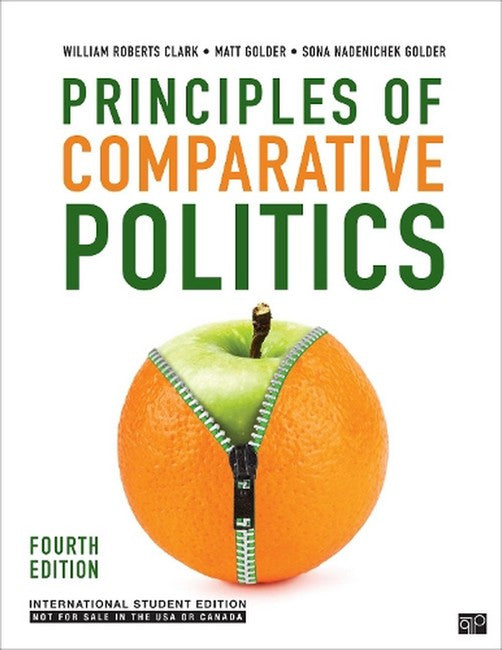William Roberts Clark is head of the Department of Political Science at Texas A&M University and a fellow at the Institute for the Study of Religion at Baylor University. He is the author of Capitalism, Not Globalism, and his articles have appeared in American Political Science Review, Comparative Political Studies, Political Analysis, and European Union Politics, among other journals. He has been teaching at a wide variety of public and private schools (William Paterson College, Rutgers University, Georgia Tech, Princeton, New York University, and the University of Michigan) for more than three decades. Matt Golder was previously assistant professor of political science at Florida State University. He is the author of articles which have appeared in the American Journal of Political Science, British Journal of Political Science, Comparative Political Studies, Electoral Studies, and Political Analysis among other journals. He has taught classes on comparative politics, advanced industrialized democracies, quantitative methods, and European politics at the University of Iowa, Florida State University, and the University of Essex. Sona Nadenichek Golder was previously assistant professor of political science at Florida State University. She is the author of The Logic of Pre-Electoral Coalition Formation, and has published articles in the British Journal of Political Science, Electoral Studies, and European Union Politics. She teaches courses on European politics, democracies and dictatorships, comparative institutions, game theory, and comparative politics at Florida State University and was a Mentor-in-Residence for the 2007 Empirical Implications of Theoretical Models Summer Program at UCLA .
Request Academic Copy
Please copy the ISBN for submitting review copy form
Description
1. Introduction 2. What Is Science? 3. What Is Politics? 4. The Origins of the Modern State 5. Democracy and Dictatorship: Conceptualization and Measurement 6. The Economic Determinants of Democracy and Dictatorship 7. The Cultural Determinants of Democracy and Dictatorship 8. Democratic Transitions 9. Varieties of Dictatorship 10. Problems with Group Decision Making 11. Parliamentary, Presidential, and Semi-Presidential Democracies 12. Elections and Electoral Systems 13. Parties, Party Systems, and Party Competition 14. Institutional Veto Players 15. Consequences of Democratic Institutions

